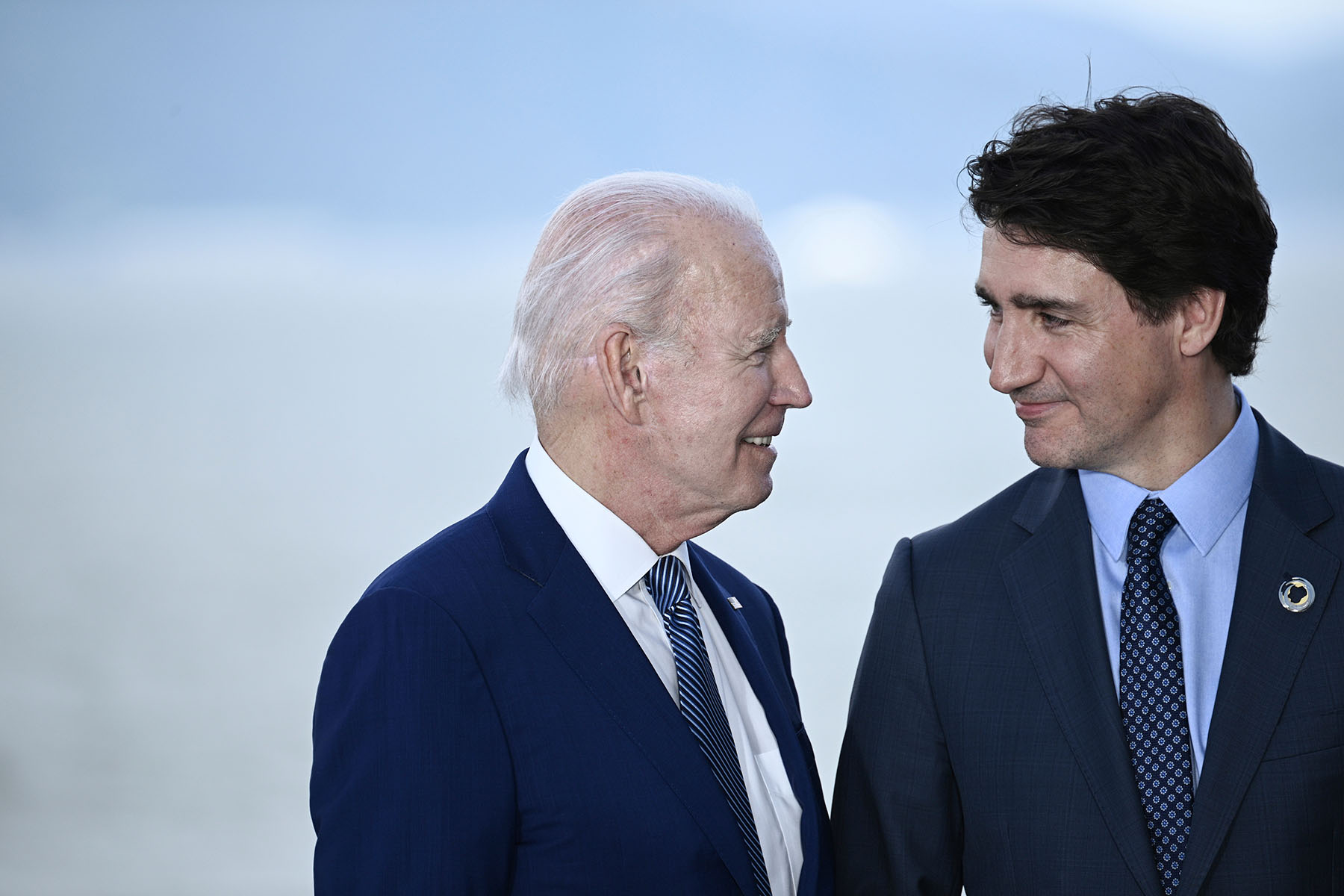ALMOST EVERY DAY, I hear someone talk about how terrible things are right now. Whether it’s the crushing cost of housing, the escalating climate crisis, misinformation and rabid disinformation, the ongoing effects of the COVID-19 pandemic, or the humanitarian crisis in Gaza—the list is endless. Older family members on both sides of the Canada–US border shake their heads and make comments about how terrifying and screwed up their country is. My ninety-two-year-old great aunt has said she’s glad she won’t be around much longer, while others in their seventies have put it more bluntly: it’s a good time to die. These are off-the-cuff statements, but they always leave me with a sinking feeling.
These days, what’s considered terrible is often a point of contention. What I think is terrible about our current situation isn’t necessarily what others think, nor do we agree on who or what can rectify it. And yet, across the political spectrum, across demographics and borders, there’s a palpable sense that things are broken and we need real change—fast. It’s as if critical aspects of the world we thought we lived in have finally started to crumble. Chronic instability is at the heart of it, the recognition that we’re living through a turbulent time in history.
This desire for change is one reason why calls for US president Joe Biden and Canadian prime minister Justin Trudeau to not seek re-election feel so similar, though there are major differences between the two. Biden’s biggest liability is his age. At eighty-one, he’s part of the so-called Silent Generation, while Trudeau is quintessentially Gen X. Biden’s only been president since 2021, but he was vice president from 2009 to 2017, under Barack Obama. Trudeau’s been leading this country since 2015.
But both Biden and Trudeau embody an ethos and vision that are in stark contrast to the reality we’re facing. Both display a breathtaking confidence in their political prospects that borders on entitlement, as well as an inability to meaningfully address the severity of our current polycrisis. In Biden’s interview with ABC News on July 5, an interview that was supposed to calm nerves after his catastrophic appearance in the first presidential debate, Biden rejected any claims of pessimism. The New York Times called it “an exercise not just in damage control but in reality control.” Trudeau and his inner circle have similarly dismissed the storm brewing, especially after the recent by-election loss to the Conservatives in Toronto-St. Paul’s, previously a safe Liberal riding. As investigative journalist Justin Ling put it in an article for this publication, “if this government hopes to heal itself, Trudeau himself will need to appreciate—not explain away, or deflect, or tamp down—the anger that people are feeling.”



Your 92 year old aunt voted for the policies that led to this. She got all the benefits and now gets to check just as the bill needs to be paid.
Theres a massive cohort of baby boomers trying to vote for policies to benefit them until they die. That continue screwing over the youth in the meantime. They simply don’t care because the long term effects won’t hurt them.
Blaming one cohort for what is happening is myopic at best.
The fact is this dystopian outlook is what got Trump elected in 2016 … because politicians failed to see that people were fed up with the status quo and wanted change. Now 8 years later it is still the driving reason.
Without hope the people perish. Without hope of a better future, people give up. Without hope of affordable housing and food people waste away.
Without hope …
There is change, though. It is not swift, nor is it all encompassing, but it still exists.
The problem is, it’s not enough for people who want everything, and want it now. So they go to someone who promises the sky before burying in the dirt. Because they care more about what they want instead of what their respective countries need.
More than hope, we need pragmatism. Hope will only get us so far, and then leave us hanging in the air like an ill-fated coyote.
People voted a guy in on electoral reform and nearly a decade later, he hasn’t delivered on that promise. I don’t think thats an issue with people “wanting everything”. A lot of us just want what was promised and to be able to afford to live without financial stress again.
Except melinials are the largest voting block. So Boomers don’t have the power people like to place on them. Fact is some people don’t care and don’t vote others are going to vote against what you think is the right one.
That doesn’t mean the boomers aren’t a massive voting block pushing for specific policies. Also, the millenial cohort is very recent. Between being too young and poor voter turnout they were not significant until this decade.